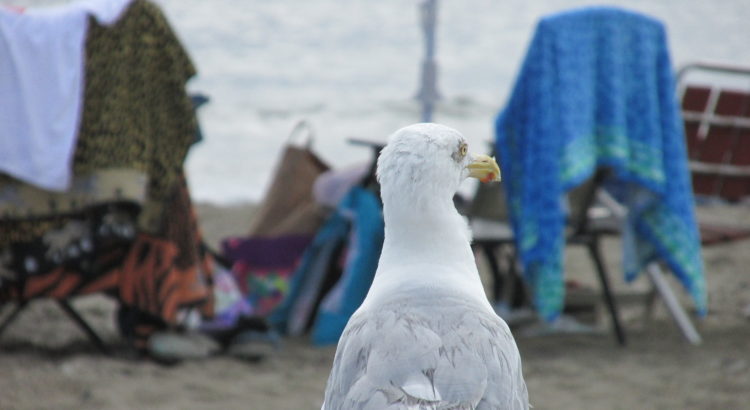By: Kim Snyder, Interpretive Ranger for Southern Region Parks
We’ve all been there: perfect day at the beach, perfect sandwich in hand, taking in the crash of the surf and soaking in the sun. Then…
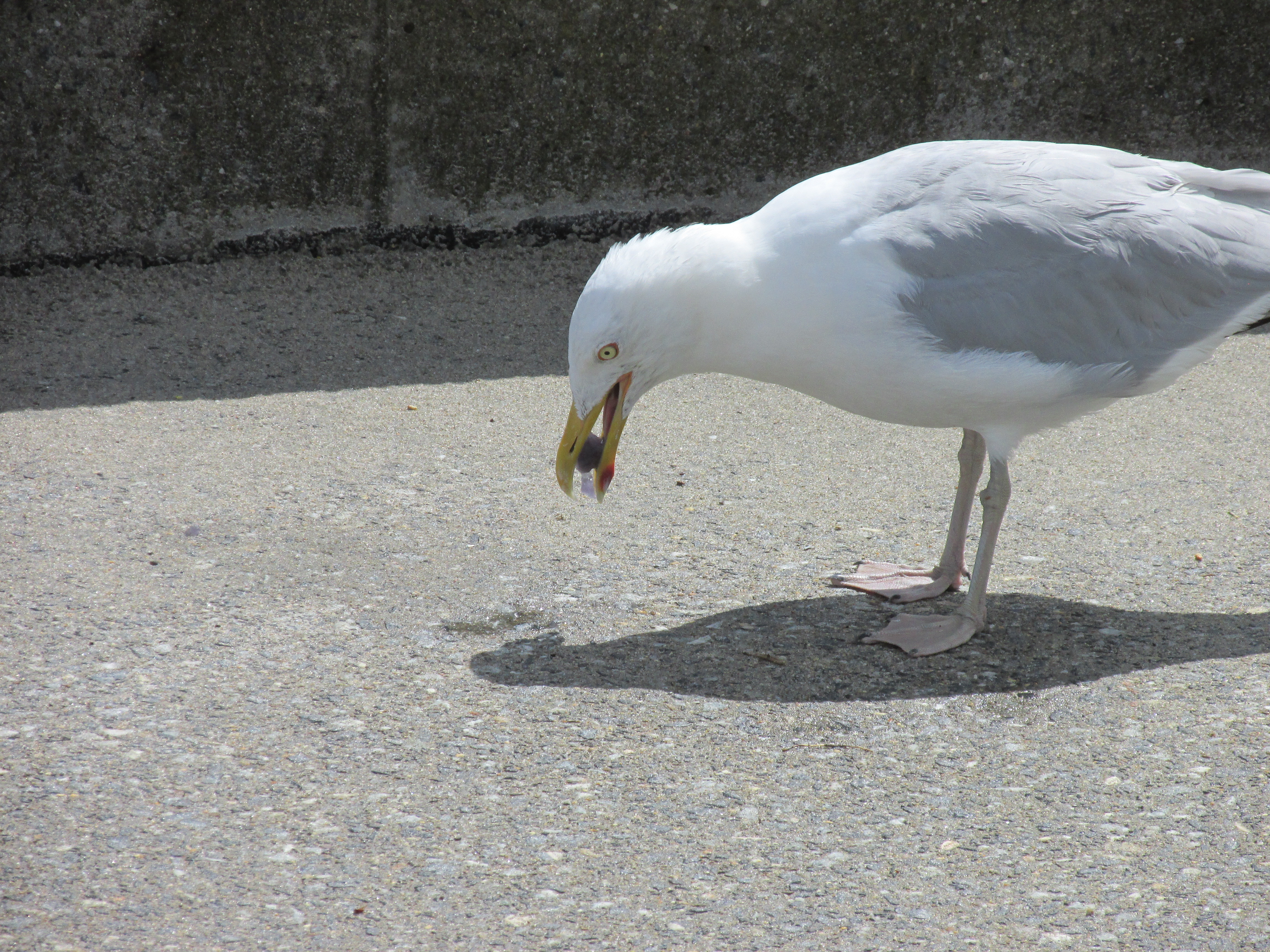
A gull steals your lunch! Just swoops down and plucks it right from your unsuspecting hand.
The gulls tear into your food, squabbling and jockeying for the best bites until one of them takes off with the sandwich in their beak, seeking a quiet place to gulp it down.
And you’re left lunch-less on the beach.
Having watched beach-goers lose their food to gulls all summer, I have a few rules to help keep sandwiches in your hands.
Rule 1: Don’t be a free lunch.
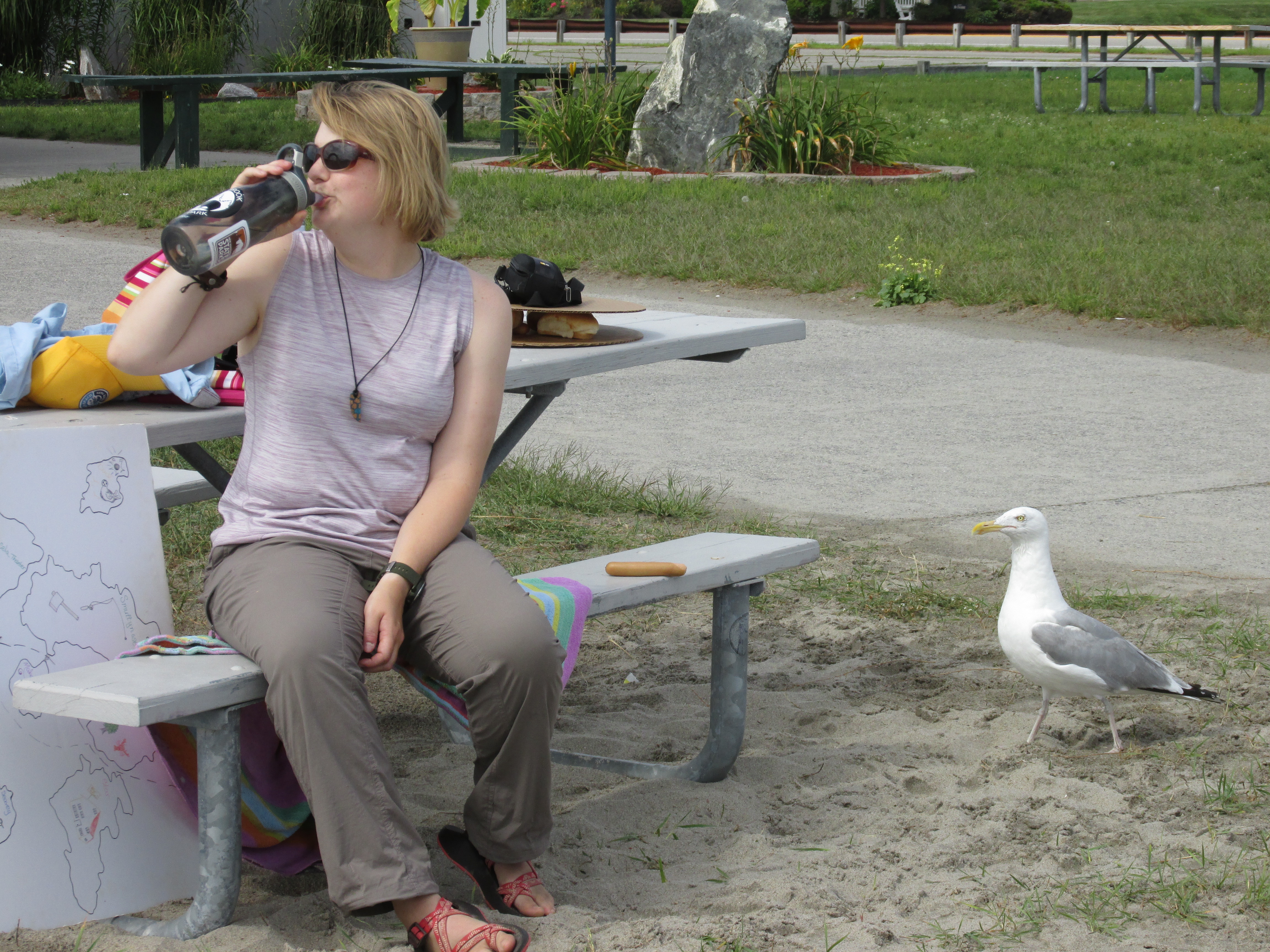
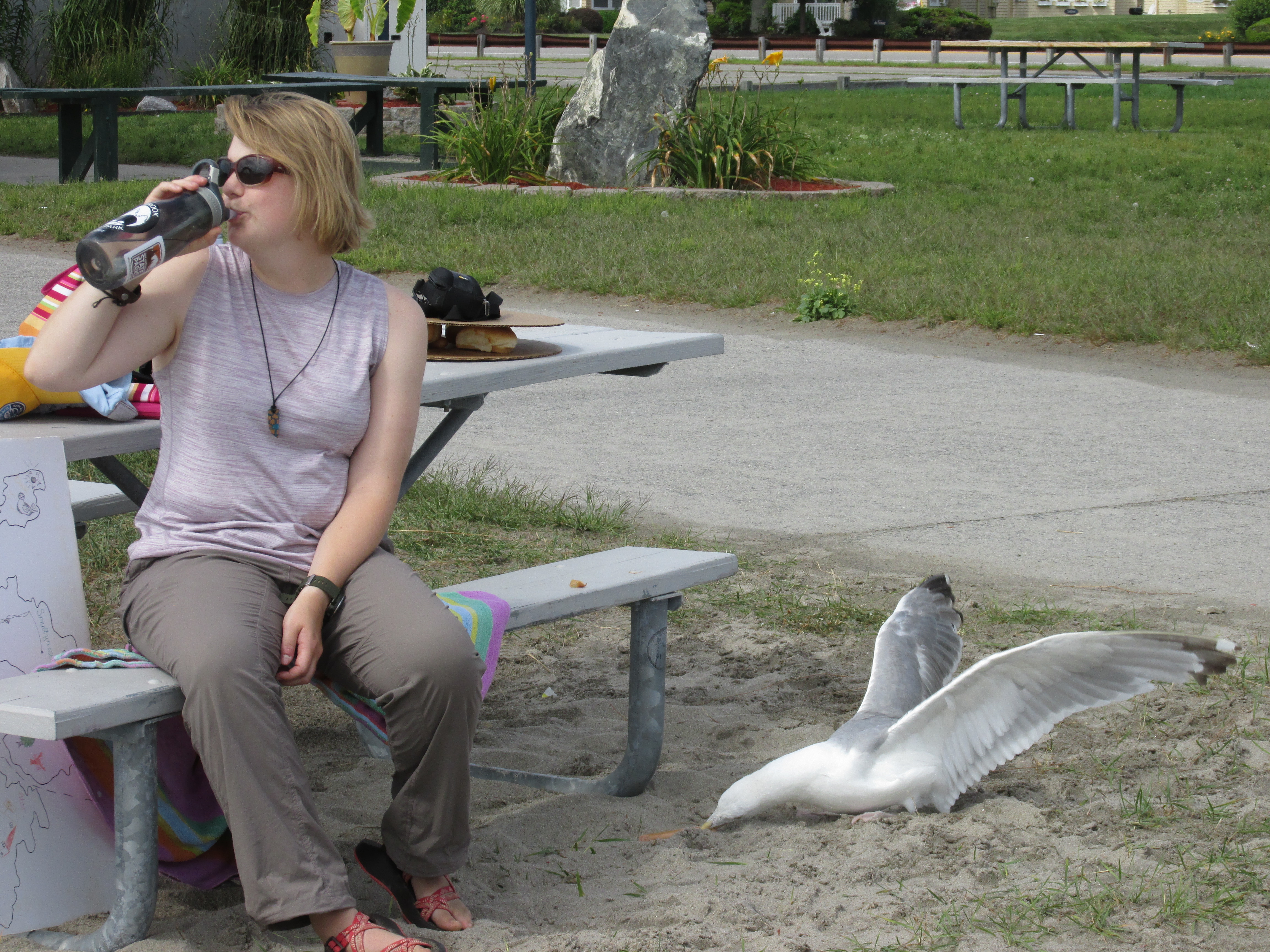
Economics aside, just leaving food lying around is asking for trouble. It makes you a big fragrant target for hungry birds up and down the beach. Even if your food isn’t open or exposed, it can still attract the birds. I’ve seen gulls attacking unopened chip and candy bags as if they were crabs: stabbing at them and dropping them from great heights because they know that once split open, they yield a free lunch.
The solution? It’s simple really. Clean up after yourself and pack food away when you’re not eating it. Hard, sealable containers are great for keeping gulls out of your food. And always make sure to take all of your trash off the beach. Not only can leftover food exacerbate the gull problem, gulls can choke on trash.
Keep your spot clean and organized and gulls will have less reason to poke through your things.
Rule 2: Don’t let gulls bully you
Here’s a good fact to remember: a greater black-backed gull — the largest gull species on the planet — weighs between 2 and 4 pounds on average. But while they are much smaller than us, they do have sharp beaks and powerful wingbeats that can cause injury.
However, gulls are not usually looking for a fight, especially with a human several times their size. Shooing them away – or – having a water gun handy makes you less of a target because it’s more work for the gull to get the food they’re eying.
If shooing or spraying gulls isn’t something you find yourself able to do, just a simple shift in beach set up can dramatically improve your chances of keeping your lunch to yourself. Eating under some kind of cover like an umbrella or a canopy prevents gulls from dive-bombing you. Even a simple cover over your food can deter gulls. Using one hand to protect your food while walking across the sand reminds gulls that your nachos and hot dogs are not part of the beach buffet.
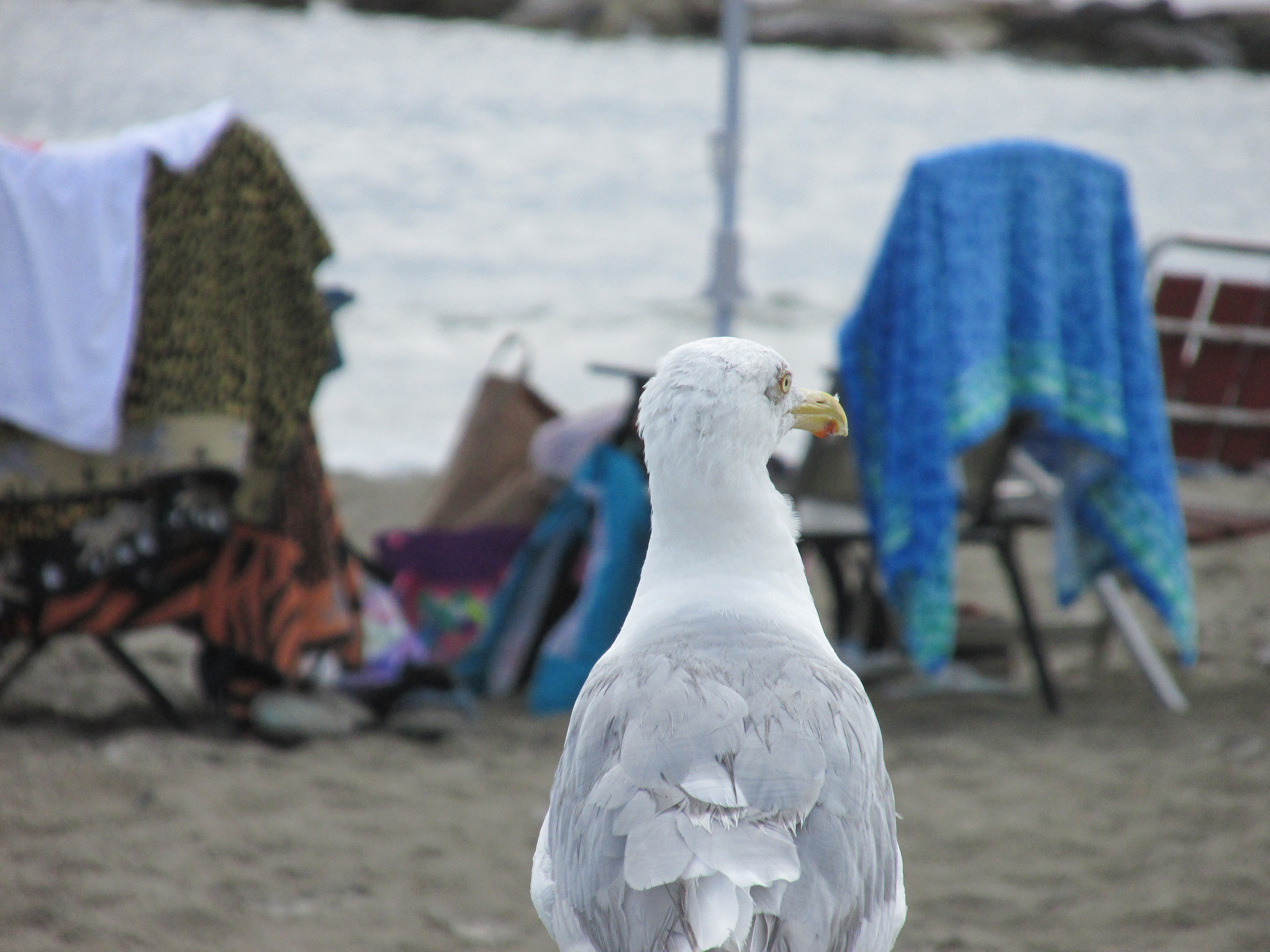
And always keep one eye to the sky. Gulls often perch high on buildings or flagpoles and swoop down suddenly to ambush people. They’ve realized that startling people into dropping their food equals a free meal for them. People have been hit by passing gulls or cuffed by their wings and dropped their food as a result.
So toughen up and defend your lunch!
Rule 3: NEVER, NEVER NEVER NEVER FEED GULLS!
You may think that it’s harmless just tossing a hunk of bread or a chip to the sad-looking bird wandering around your blanket. And it’s fun to watch them gobble up the offering or fight with other gulls over it. But this simple action can quickly cascade into a colony of nuisance gulls.
Gulls learn; they have to in order to survive. As scavengers, knowing how to crack open a crab is just as important and knowing that roadkill is an easy meal. And this applies to beach food too. They’ve learned to eat our trash and exploit our charity. If a gull (or any animal) has been fed by people before, it loses its natural fear of humans and approaches closer, putting itself and the people in danger. And what one gull succeeds at, others notice. Gulls are quick to copy behaviors and you might soon find your blanket swarmed with hungry gulls if you are giving handouts.
So avoid the temptation to toss them a hunk of bread and convince them they are better off search for handouts elsewhere.
This behavior of habitual food snatching by gulls is learned. And it can be unlearned. Gulls have long lifetimes (a herring gull can live up to 30 years!) and they are constantly adapting to find new food sources. With a few changes in our habits, we can help change the habits of nuisance gulls and share the beach with them.

